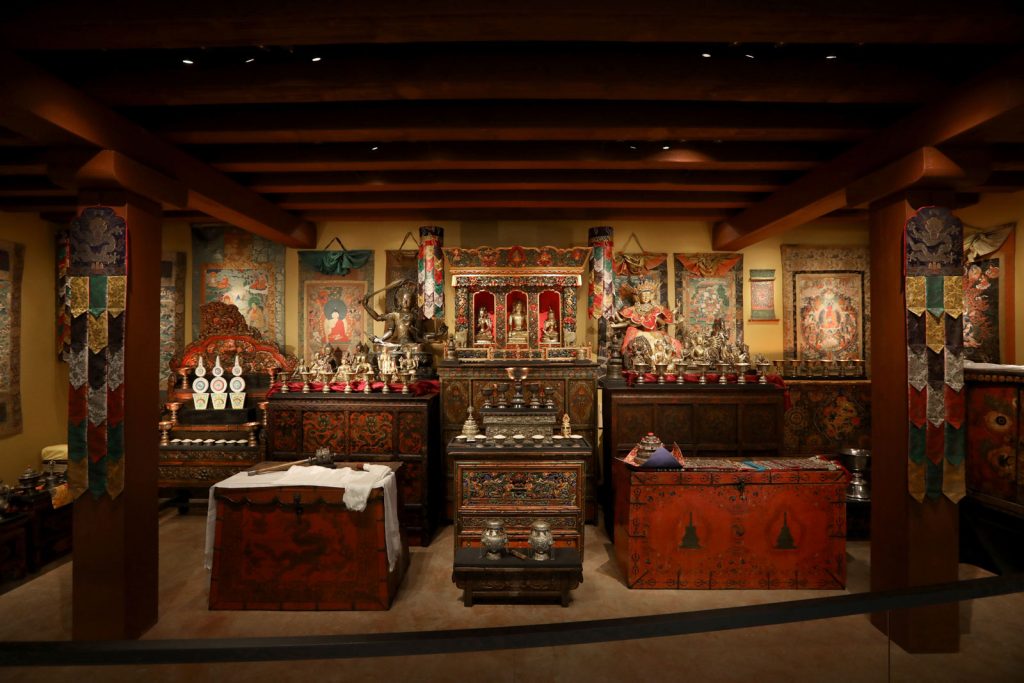Nothing is permanent, so everything is precious. Here’s a selection of some happenings—fleeting or otherwise—in the Buddhist world this week.
Cyclone Pummels Tibetan Refugee Settlement
A devastating cyclone struck the Odisha region of East India in early October, killing 77 people, and the hard-hit Phuntsokling Tibetan refugee settlement is now struggling to rebuild after their harvest for the year was destroyed, according to an emergency appeal for aid by the Central Tibetan Administration (CTA). Cyclone Titli tore through the settlement on October 10 with winds up to 93 mph, ripping up 1,700 acres of corn crops, uprooting more than 2,400 fruit trees, and damaging homes, according to a survey by the deputy secretary of the CTA’s Home Department, Dhondup Tsering. There were no reports of deaths or injuries within the Phuntsokling settlement, which appears to have successfully evacuated its population of around 2,792 refugees, according to the CTA. The appeal said that Central Tibetan Relief Committee is doing everything in its power to help the people who have lost their livelihood but called on all “governments, NGOs, associations, organizations, and individuals” to provide any additional aid that they can. (Donation information is available on the CTA website.)
Refuge Recovery Looks for New Literature
The nonprofit peer-led support group Refuge Recovery has put out a call for members to help develop new literature for people struggling with addiction. The group’s main guide book has been founding member Noah Levine’s Refuge Recovery: A Buddhist Path to Recovering from Addiction. But Levine resigned from the nonprofit Refuge Recovery’s board of directors (Levine remains the CEO of the for-profit Refuge Recovery Treatment Centers) earlier this year following allegations of sexual harm at his other organization, Against the Stream. Now some Refuge Recovery members have expressed discomfort reading his book, while others have maintained that the book continues to be a valuable asset for recovering addicts. Still, acknowledging the needs of some who hope for different—or additional—guidance, the group’s literature committee has been exploring new options. The message to members says they are looking for “personal stories from the community to help inspire, encourage, support, and guide newcomers,” adding, “This is an opportunity to grow our literature, not to replace the book Refuge Recovery.”
Buddhist and Christian Nuns Hold Conference in Taiwan
The First International Buddhist-Christian Dialogue for Nuns took place in Taiwan recently, according to the Vatican News and a Vatican press release. The October 14–18 conference on “Contemplative Action and Active Contemplation” put 70 nuns from four continents together to promote dialogue between the two traditions on the monastic experience. They discussed topics including the relationship between Buddhist meditation and Christian contemplation, how nuns can serve humanity, and promoting “feminine genius,” according to the press release. The event was organized in part by the Vatican follows a major deal in September between the Holy See and China that acknowledged Chinese government-appointed bishops who had previously been excommunicated. The Vatican remains one of the Taiwan’s few allies in Europe, and as the agreement eased the church’s relationship with China, speculation arose over whether the Vatican’s support would continue.
Hunger Walk Canceled Due to Nor’easter
The socially engaged Buddhist Global Relief (BGR) group has cancelled their October 27 Walk to Feed the Hungry in New York City due to a Nor’easter expected to bring gusts of wind up to 50 mph to the area. The event at Riverside Park is part of an international series of fundraising walks designed to “help people around the world escape from chronic hunger and malnutrition.” In an email announcing the cancelation, the BGR reminds its supporters that they can still donate to their efforts to reduce world hunger.
New Exhibit Joins the Rubin’s Shrine Room
The Rubin Museum’s popular Tibetan Shrine Room has some new company. The Rubin’s latest exhibit juxtaposes the permanent installation with contemporary works by Nepali artist Tsherin Sherpa and Taiwanese artist Charwei Tsai. Tricycle got an early sneak peek of the Shrine Room Projects: Wishes and Offerings, which opened on October 26. Tsherin Sherpa’s Wish-fulfilling Tree was created in the aftermath of the 2015 earthquake in Nepal and features a gleaming gold mandala rising up out of a reproduction of Kathmandu’s rubble. Incense Mantra depicts Charwei Tsai burning incense inscribed with the mantra of the Heart Sutra, offering up its power to benefit others.
A Psychedelic Sangha
Self-described consciousness hacker and New School religious studies professor Chris Kelley has started a “psychedelic sangha.” The monthly meetup group at the New School’s Albert and Vera List Academic Center describes itself as a “a safe and supportive spiritual community—a refuge for misfit Buddhists and psychonauts who are searching for like-minded people who equally value both Buddhism and psychedelic science,” according to their website. While Kelley and the psychedelic sangha regard “psychedelics (or “entheogens”) as an important and undeniable facet of the American Buddhist experience,” it should be noted that other Western Buddhists disagree.
Related: Buddhists’ Psychedelic Revival
Thank you for subscribing to Tricycle! As a nonprofit, we depend on readers like you to keep Buddhist teachings and practices widely available.
